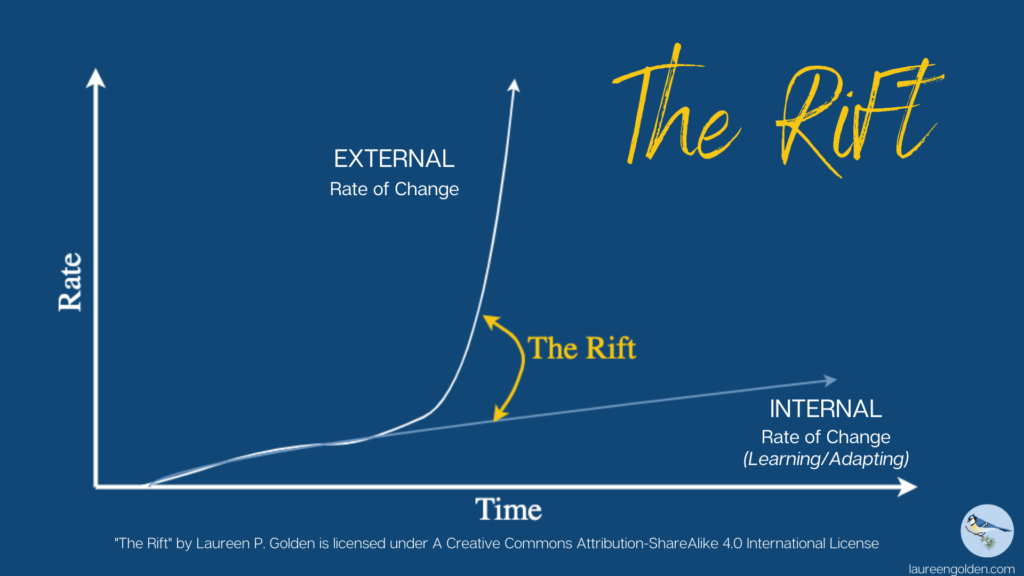
Happy Monday! We’ve been exploring the not-so-easy-to-deal-with context of exponential change. And while we can’t change that exponential change is our new normal, we can change our relationship to change. That’s the topic we’ll be exploring this week.
To understand why this topic matters, today we’ll look the rate of external change in relationships to the rate of internal change (ie, learning, developing, adapting, evolving).
An Ongoing Spiral of Coevolution
Humans, like all other creatures, have adapted to life on our planet. Yet over time, humans distinguished ourselves from other species by our ability to solve problems and create innovations.
As humans evolved, we discovered/learned new things, and as we discovered/learned new things, we evolved. External and internal change have developed together in an ongoing spiral of coevolution.
Each discovery aided human life, as well as added new levels of complexity to which humanity has needed to adapt. (Think for a moment how the discovery of fire, the wheel, and agriculture required humans to adapt and be changed by change).
“The Rift”
We are at a precarious moment … our internal rate of change has not yet shifted along with external change into an exponential pattern. This means there is a growing discrepancy between the external changes humans have set in motion and our internal capacities to manage them.
“The Rift” is how I refer to this growing mismatch between the world’s complexity and our own.
Indications that you’re experiencing The Rift include the sense of overwhelm ~ the feeling that we are “in over our heads“[1] and that no matter how hard we effort, it seems we’re only “falling further and further behind our times“[2}.
The feeling of overwhelm will grow increasingly intense as time passes, unless we shift our rate of internal change to an exponential pattern.
Therefore, an antidote to The Rift (and the accompanying feeling over overwhelm) is to change our relationship to change by allowing ourselves to be changed by changed. (This is where we’ll pick up on Wednesday.)
Rober Kegan, In Over Our Heads: The Mental Demands of Modern Life
[2] Donald A. Schön, discussed the sense that “we are falling further and further behind our times,” pointing out that, growing in tandem with accelerated change, is increasing complexity of problems, increasing numbers of these complex problems, and increasing amounts of time required to manage these problems (as they morph so quickly, solutions become irrelevant in shorter and shorter amounts of time).
